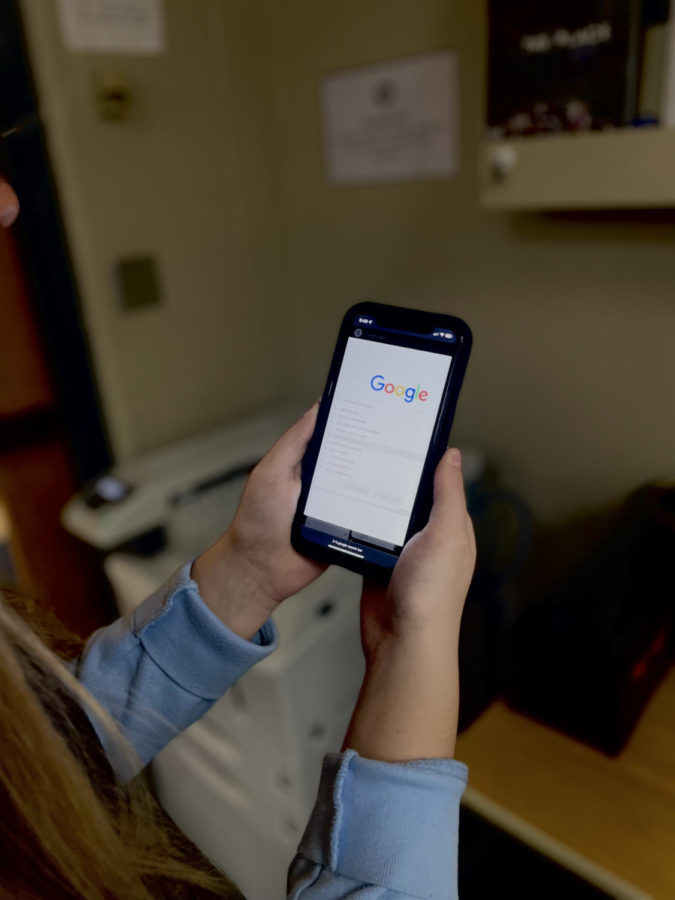A Modern-Day Space Odyssey
Are our phones listening to our conversations?
November 10, 2022
Imagine you’re having dinner with your family. Your conversations range from this week’s breaking headlines to the most current fashion trends, and everything in between. You briefly mention that you’ve been eyeing a new pair of Nike sneakers at the store. Later that night as you scroll through Instagram, you get an ad…for the same pair of sneakers you mentioned at dinner. You don’t think much of it, until you notice similar situations occurring more and more frequently. You mention that you want a chicken sandwich, and boom: ten minutes later a Chick-Fil-A ad is staring up at you from your phone. But how does your phone know which ads are relevant to you? The only explanation is that our phones are listening to us, right?
Wrong. Although ads are individually catered to the user, it does not necessarily mean that they are gathering their information from voice detection. Many apps such as Instagram, Twitter, and Facebook use on-site data such as search history, profile interactions, and purchases to learn more about the user. They then sell – yes, sell – your data to advertisers who conveniently place ads on your social media apps. It looks like this: apps provide our analytical information to advertisers, who then create targeted ads to appear on those apps that will inevitably grab our interest. It could be said that our phones don’t listen to us; they just monitor our every move.
It’s similar to the TikTok algorithm. The app develops your “For You Page” by monitoring every action you make on the app such as liked videos, video completion rate, favorited videos, accounts following, search history, and more. All of it is a strategy to get you to spend more time on their app. And most of the time, it works. While TikTok may not necessarily advertise as much as Instagram, Facebook, and Twitter do, they still collect a large amount of data in an attempt to cater to the user.
Even if our devices claim to not listen to us, it is still never a bad idea to practice online safety and common sense. Turning off the microphone for specific apps in settings can help confirm that your apps aren’t listening to you. Keeping your online presence to a minimum and not sharing any personal information online is crucial to staying safe. Of course it’s still okay to spend time on these apps, but remember that you’re in control of both what information goes out and how much of your time you devote to them.
Hunter, Tatum. “Ask Help Desk: No, Your Phone Isn’t Listening to Your Conversations. Seriously.” The Washington Post, WP Company, 14 Nov. 2021, https://www.washingtonpost.com/technology/2021/11/12/phone-audio-targeting-privacy/.
















































































